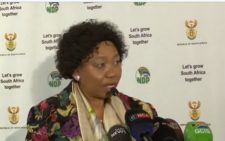Strategies on conflict, climate change delay Africa’s growth

Inadequacy of preventive and coping strategies to address conflict and climate change is holding back Africa’s growth prospects, a new World Bank report has revealed.
Climate change does not directly cause conflict, but it exacerbates existing tensions and vulnerabilities, acting as a “threat multiplier”. This means it intensifies competition for resources, drives up food prices, and heightens geopolitical instability, potentially leading to conflicts.
Studies indicate climate change impacts such as drought, floods, and land degradation can disrupt livelihoods, create resource scarcity and increase social tensions, making it more likely for violent conflicts to erupt in areas already facing instability.
The World Bank report, ‘Africa’s Pulse: Improving Governance and Delivering for People in Africa’, notes that economic growth in sub-Saharan Africa is showing some resilience, despite uncertainty in the global economy and restricted fiscal space.
However, countries rich in resources and those facing fragility, conflict and violence are growing more slowly than the rest of the region, while the continent is struggling to reduce poverty and create enough good jobs for its young population.
Escaping the cycle of poor growth outcomes and political dissatisfaction will require that governments prioritise the delivery of practical solutions for their citizens. This implies focusing on areas where governments directly affect people’s lives—providing quality public services and fairly-regulated market competition.
Inadequate strategies
The report underscores the importance of strategic investments and complementary policies that bolster human capital, improve public services, and create a fair tax system, thereby fostering a business environment supporting growth and job creation.
According to the report, African governments must also prioritise governance reforms to maintain growth momentum and restore public trust.
Besides these objectives, the report notes that growth prospects in the continent are held back by the inadequacy of preventive and coping strategies to address conflict and climate change.
It refers to the incidence and severity of conflict and violence that increased across areas of the sub-continent throughout 2024 and the start of this year.
Almost two years into the conflict that began in April 2023, the war in Sudan continues to take an enormous toll on lives and livelihoods.
An estimated 12.9 million people have been forcibly displaced since the outbreak of the conflicts, including 8.9 million internally and 3.8 million in neighbouring countries.
Mineral-rich areas in the eastern part of the Democratic Republic of the Congo (DRC) have become battlegrounds for armed groups.
The conflict compounded by the competition over and the exploitation of its rich mineral resources and climate change has affected 14 per cent of the DRC’s population, leading to a swelling in internally displaced persons.
Hostilities between Congolese troops and M23 rebels have surged, with the rebels having taken control of North Kivu and South Kivu provinces.
Recent heavy rainfall and flooding left 33 people dead, thousands displaced, and homes and property swept away in the DRC capital, Kinshasa. Weather experts are warning Congolese authorities to prepare for more frequent such disasters.
The floods in Kinshasa followed the worsening humanitarian situation in eastern DRC, where government forces and Southern Africa Development Cooperation (SADC) troops were overrun by Rwanda-backed M23 rebels.
Elsewhere, in 2024, fatalities caused by the Islamist insurgency remained at an all-time high, with the Sahel accounting for more than half of the Islamic activity on the subcontinent. The rise in conflict has led to acute food insecurity and a rapid increase in food emergencies,
Recent estimations suggest that around 120 million Africans face acute food insecurity, and a rapid increase in food insecurity, of which 80 per cent live in countries experiencing conflict. This situation will be compounded by reduced official development assistance for emergency response.
Rising temperatures, anomalous rainfall patterns, and multi-year extreme weather events are repeatedly battering Sub-Saharan African countries.
Devastating floods as a result of unprecedented rainfall in the third quarter of last year hit large parts of Central and West Africa (Cameroon, Chad, Niger and Nigeria).
The impact of floods in Sudan was compounded by the complex humanitarian crisis that weakened aid organisations’ capacity to respond.
Costly impact
Unpredictable growing conditions are adversely affecting not only the cocoa harvest and prices in Côte d’Ivoire and Ghana, but also stockpiles in the world marketplace.
On average, the response to extreme weather events such as droughts and floods has diverted up to 9 per cent of African governments’ budgets and rendered losses of 2 to 5 per cent of economic activity.
It has been estimated that adapting to climate change will cost sub-Saharan Africa between US$30 billion and US$50 billion per year over the next decade, which is 2-3 per cent of the region’s GDP.
This impact would hit the poor more than proportionally, as it harms crop yields and food supply and exacerbates food insecurity.
Meanwhile, African governments, international organisations and other development partners recently made a forceful call for the November United Nations 2025 climate summit (COP30) to advance a just and inclusive global climate agenda.
Under the theme ‘Rethinking Financing and Ambition for Climate Action, Green Growth and Development in Africa: A Justice Issue’, the Sixth Africa Climate Talks (ACT) aimed at advancing reform and redesign of the international financial system to better meet Africa’s needs.
The African Development Bank (AfDB), a strong voice for climate action across the continent, joined with the African Union (AU), the UN Economic Commission for Africa (ECA) to host the talks in partnership with the Uganda parliamentary Forum, the Pan-African Climate Alliance (PACJA), the Global Centre on Adaptation and UNICEF.
Uganda’s Prime Minister Robinah Nabbanja emphasised the continent’s favourable demographics of the world’s highest youth population growth as both a challenge and opportunity, a view supported by UNICEF Deputy Regional Director for Eastern and Southern Africa Alison Parker.
“Children and young people represent the next generation most affected by climate change and for whom our advocacy and negotiation for justice is pivotal,” said Parker, noting that the burden of climate change falls disproportionately on the youth.
African Parliamentarians for Action Chair Jaqueline Amongin noted that Africa is bearing the brunt of the problem it did not create. “There is no scenario in which this can be right or acceptable. This is why the concept of climate justice is relevant now more than ever,” she argued.
AfDB’s Climate Special Fund Coordinator, Dr James Kinyangi, reaffirmed the institution’s commitment to support countries in developing ambitious nationally determined contributions (NDCs).
“This is a critical step towards ensuring that climate finance is not only about dollars and cents, but also about justice and equity,” he noted.
United voice
AfDB engaged in technical discussions on the optimal role for multilateral banks (MDBs) in addressing Africa’s climate finance gaps, enhancing adaptation efforts, and promoting a fair and inclusive transition.
The bank showcased the achievements of the African Adaptation Acceleration Programme, a joint initiative of the AfDB and the Global Centre on Adaptation to mobilise US$25 billion, over five years, to accelerate and scale climate adaptation across the continent.
Makerere University Vice-Chancellor Prof Barnabas Nawangwe stressed Africa’s capacity to lead.
“Africa must rise, not with a begging power, but with a united voice. We are ready to lead in building the human infrastructure for a just, green and prosperous Africa,” he declared.













